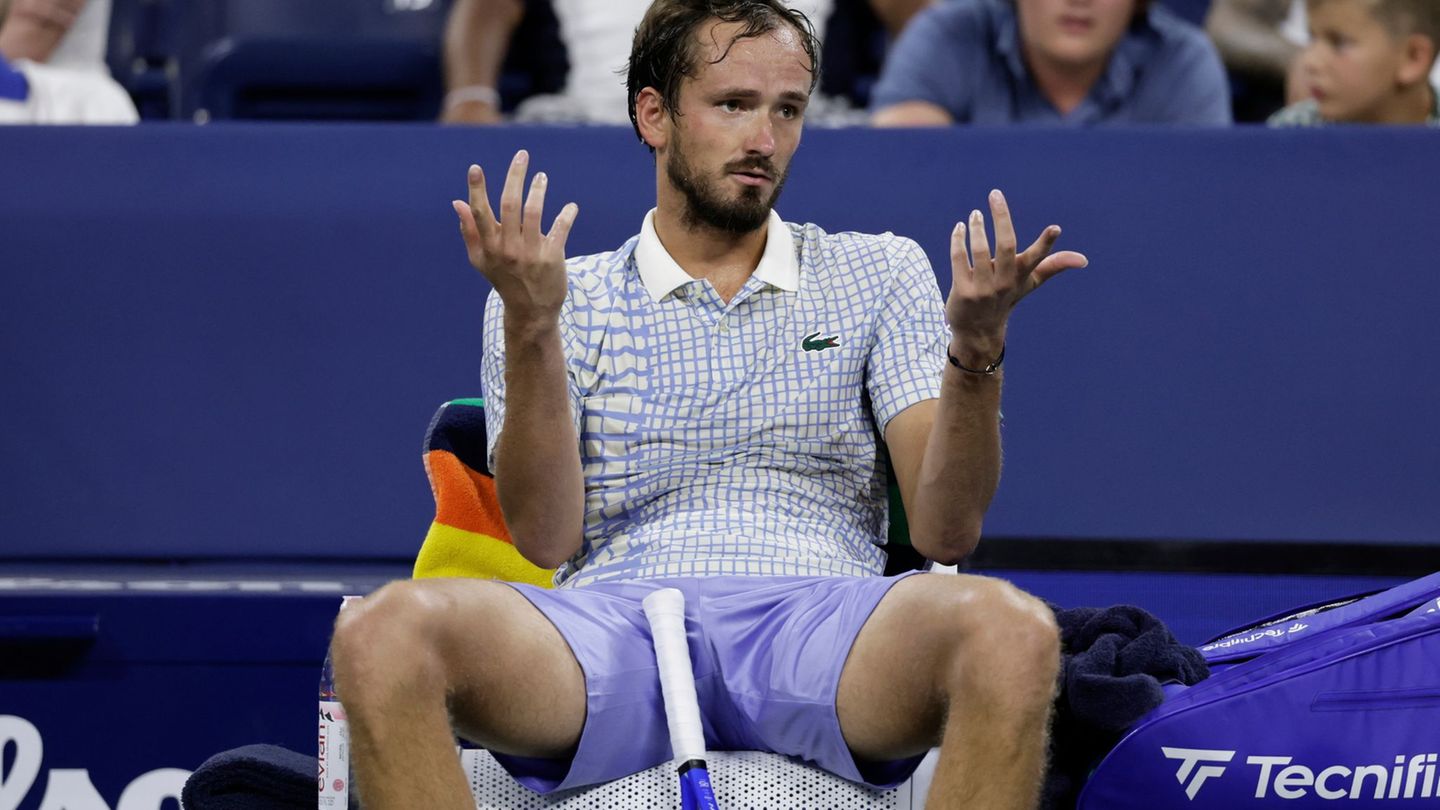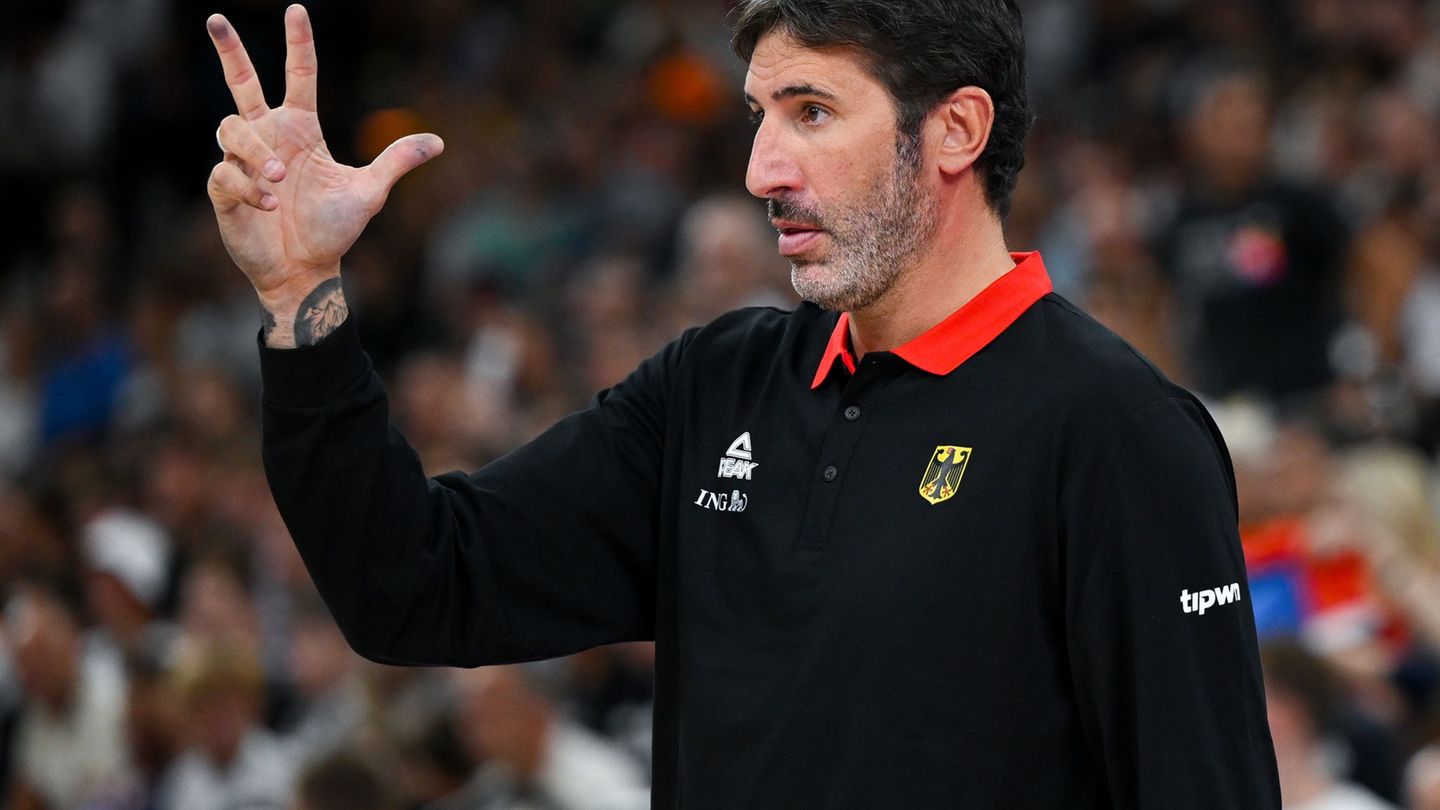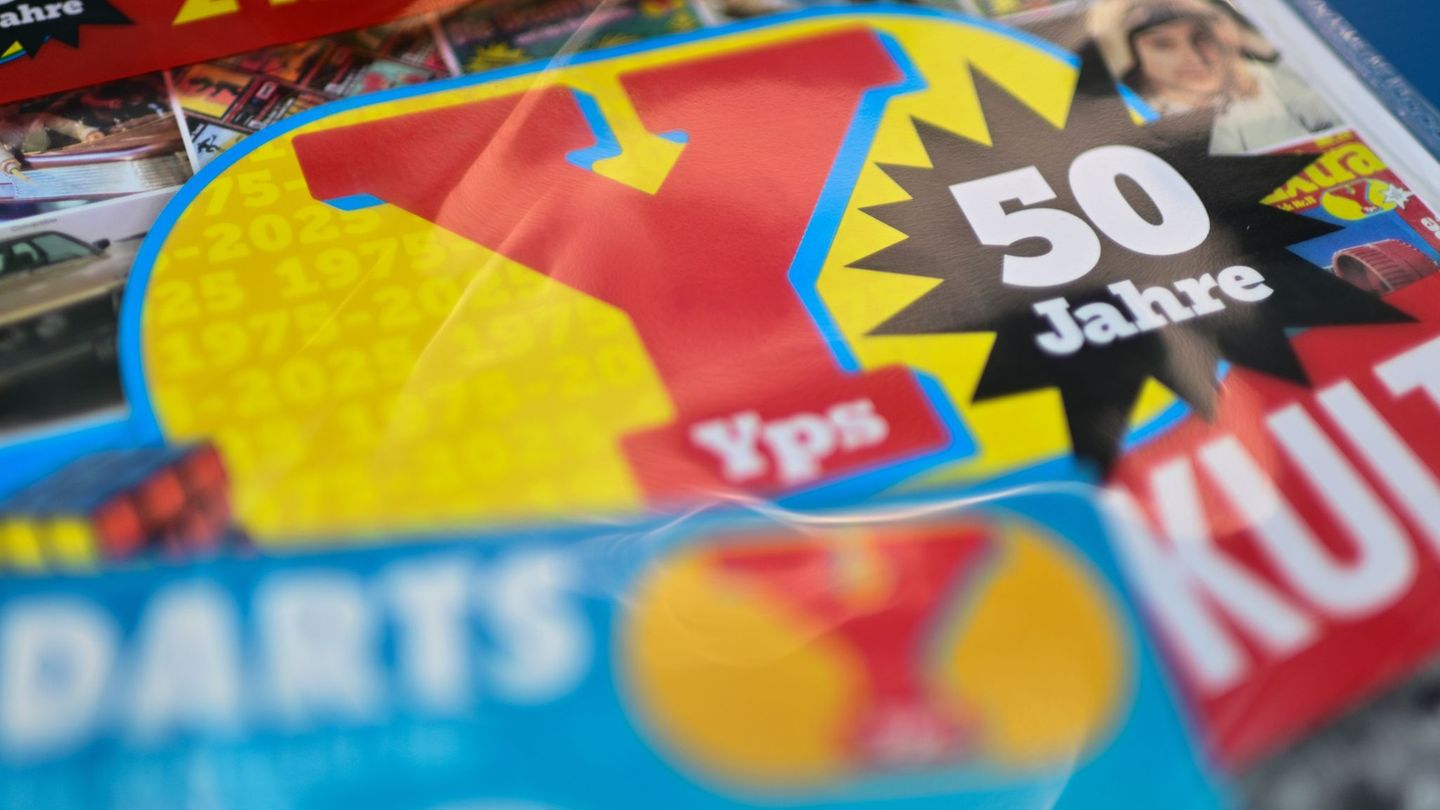US Open
Loneliness, agitation, pressure: mental problems of tennis stars
Success in tennis leads to prominence, title, prize money. But more and more professionals admit mental problems. Even with men, loneliness and lows are no longer a taboo subject. What is behind it?
Not just once, twice or three times. No, after his wild scenes, Daniil Medledew repeatedly chopped off at the US Open with his tennis racket against the bank. The anger had to get out. The former professional player and today’s Sky expert Andrea Petkovic did not want to speculate, but said: “There is an incredible pressure on the boiler. In the smallest situations that do not run the way he imagines it, it is difficult for him to control his emotions.”
Pressure is one aspect of multi -layered mental problems in tennis, which, as the dark side of the often dazzling sport, have been no longer a taboo subject. Japan’s top star Naomi Osaka made depression public four years ago, and male players are now talking about it more often. About the mental challenges of the profession, about mood depths, about loneliness. “It’s great that men are now opening up,” said Petkovic. “I think it makes it more normal to take care of the mental aspect.”
Alexander Zverev focused on the topic in Wimbledon when he talked about loneliness, lack of joy away from the square and lack of incentive at his oppressive press conference. In New York, he revealed to have got professional help. Tennis icon Boris Becker also advised the Russian Medvedev, after which he had unloaded his frustration on the racket.
There are some professionals with mental problems. The Norwegian world ranking twelfth Casper Ruud told the tennis tour in May that the tennis tour is forcing you up like a hamster wheel. The Russian Andrej Rubljow reported a few months ago that he had anxiety and took means against depression.
When he offered his help, top star Novak Djokovic also revealed that he knew such feelings: “I understand exactly what he is going through because I often went through the same thing. You feel less happy, empty, you can’t do what you want.”
Tennis professionals travel with a team that you pay for by you
Are tennis professionals particularly susceptible to this? What is behind such health problems? “Tennis is simply a very lonely sport,” said Petkovic of the German Press Agency at the US Open. Unlike team athletes, they could not be collected by a team, even if they are traveling with a team, including trainers, training partners, physiotherapists, managers.
“Most of the time it is the case that you pay everyone to be with you,” said Petkovic. A strange dynamic could arise “that tends to be surrounded by yes sagers who are always talking to you”. You don’t mean that negative. Try to set the professional positively for the next match so that you might overlook that something is going wrong so that you overlay dark pages.
Rubljow said it was not about tennis, tennis is only the trigger for it. “It’s something in you that you have to face,” said the 27-year-old. “Those who love tennis are triggered by tennis. If you say Sascha (Zverev) that he should take a break, it will be very difficult for him.”
The strain in tennis is enormous. The appointment and tournament-hatz continues to fry. Djokovic in New York said that the nine Masters tournaments were extended to twelve days, almost meant that they are similar to additional Grand Slam tournaments.
Petkovic: Not to be underestimated on the pitch
Rarely are tennis professionals at home in their long season. There is hardly any time to switch off and for vacation. Zverev also complained that he couldn’t spend a holiday with the family.
“I think loneliness on the pitch should not be underestimated,” said Petkovic. “This pressure to have to decide for yourself and then screwed it up. I think nothing stands for yourself, but all these things are taken together create this pressure. I believe that the combination of general mental exhaustion and physical exhaustion is very difficult.”
Help may take more professionals than you could think. “Maybe not everyone is talking about it,” said Petkovic. However, this assumes that “75, 80 percent” in the mental area are professionally set up.
dpa
Source: Stern
I am Pierce Boyd, a driven and ambitious professional working in the news industry. I have been writing for 24 Hours Worlds for over five years, specializing in sports section coverage. During my tenure at the publication, I have built an impressive portfolio of articles that has earned me a reputation as an experienced journalist and content creator.




